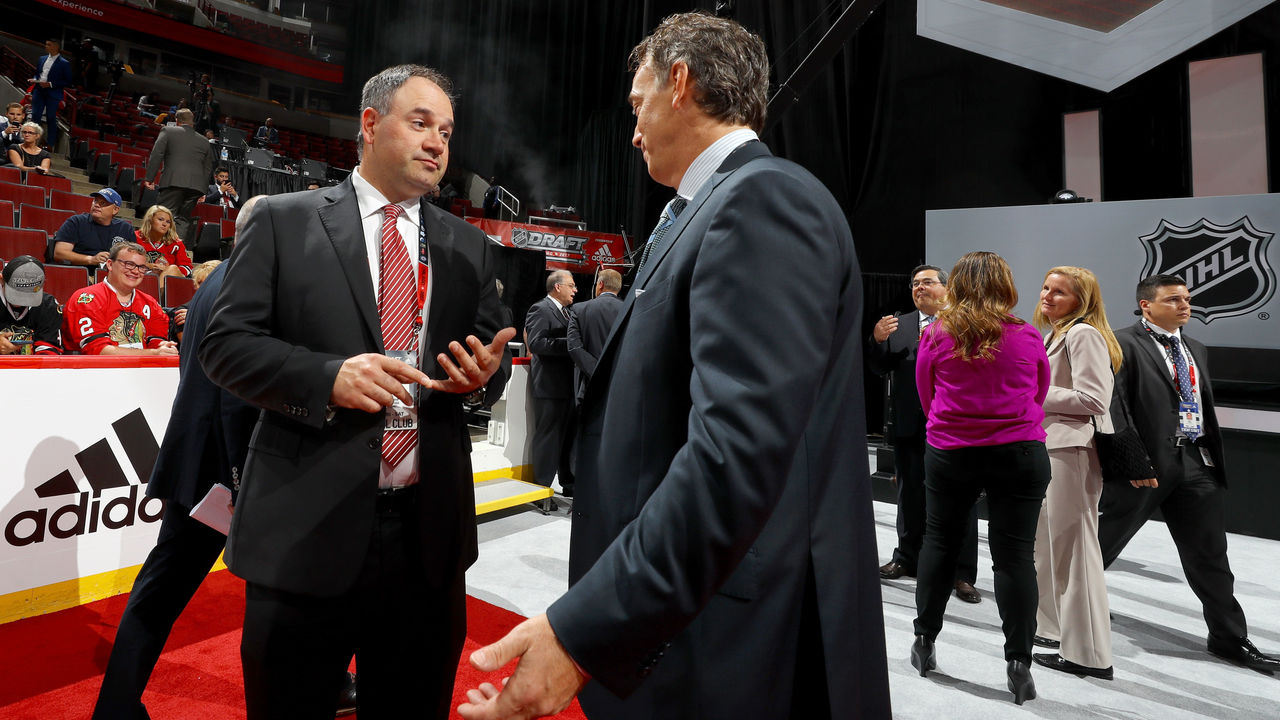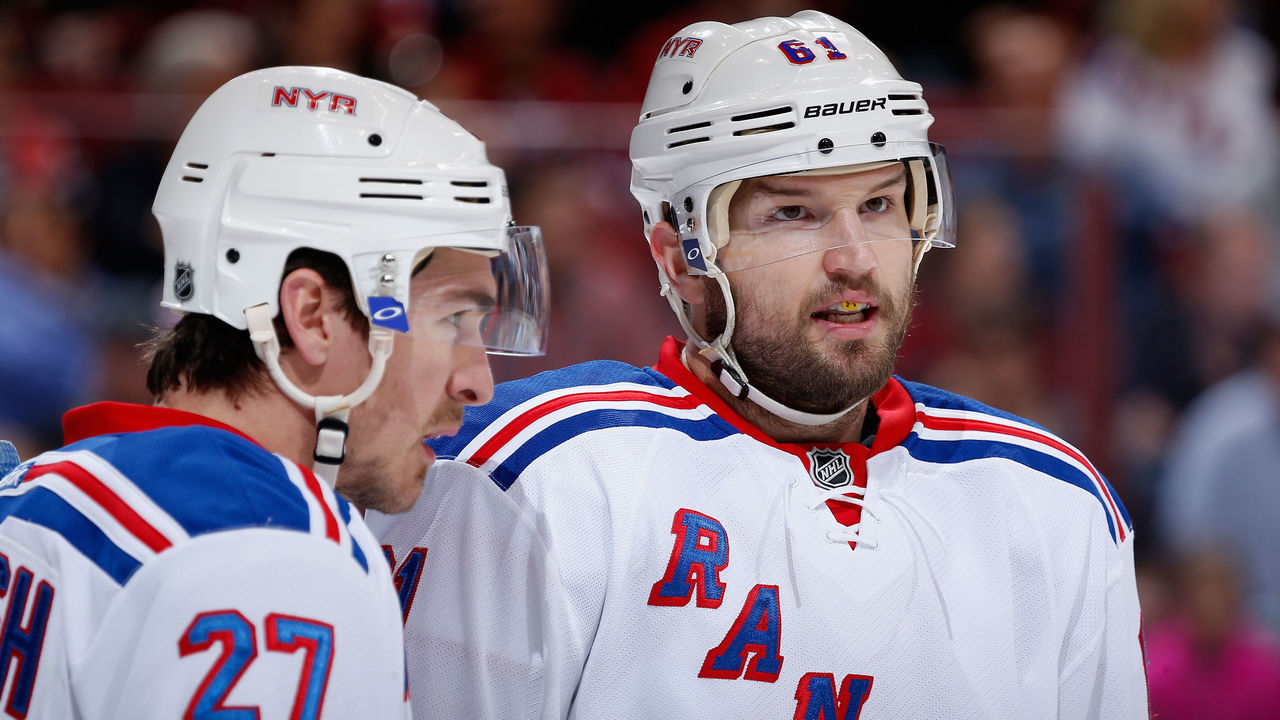How the money flowed at the trade deadline
NHL general managers really flexed their creative muscles ahead of this year's deadline and pulled off some elaborate deals.
Related: Ranking the 5 biggest deadline deals
In the days leading up to the deadline, the league saw two three-team trades and on more than a handful of occasions, salary was retained on players who were traded.
The salary cap has forced teams to get creative and at no time was that more apparent than over the last couple days. Of course, while players will always be at the forefront of all moves made on trade deadline day, don't forget the other big motivator ... the money.
Good trades come in threes

When it comes to pulling off a blockbuster trade, things are no longer as easy as they once were. With draft picks at a premium and the salary cap being what it is, it's not always possible for a single club to provide all the assets needed to get it done. So, when that's the case, you need to call on your friends.
The three-way deal between the Nashville Predators, Ottawa Senators, and Colorado Avalanche in November in which Matt Duchene was dealt to the Senators and Kyle Turris went to the Preds seemed to motivate other general managers to get in on that action.
On Feb. 23rd, the Senators pulled off their second such trade of the season, involving the Vegas Golden Knights in a deal that saw Derick Brassard shipped to the Pittsburgh Penguins.
Then, on Saturday, the Edmonton Oilers, Columbus Blue Jackets, and Predators pulled off a trade that moved Pontus Aberg to the Oilers and Mark Letestu to Columbus.
While the second deal was fairly straightforward, the first included eight different pieces, including players, prospects, picks, and even some salary retention on Brassard.
Money was tight in Pittsburgh and the Golden Knights - with all the cap space in the world - ultimately got in on the action to retain 40 percent of Brassard's salary. The Penguins likely couldn't have made this deal without the Knights' involvement.
Penguins general manager Jim Rutherford called the trade the most complex deal of his career, but they could become the norm as cap-stricken teams look for ways to balance the books.
Salary retention, no problem
NHL clubs appear to be in the giving mood these days.
If there is one trend we saw more than any other during this deadline, it was that teams don't mind eating salary if it means getting more value in a trade.
In the four days leading up Monday's 3:00 p.m. ET deadline, five players had salary retained by their former club.
| Deal | Salary Retained |
|---|---|
| Rangers trade Nash | 50% |
| Bruins trade Beleskey | 50% |
| Blues trade Stastny | 50% |
| *Golden Knights trade Brassard | 40% |
| Canadiens trade Plekanec | 50% |
* = Brassard traded from Senators to Golden Knights, from Golden Knights to Penguins.
In each deal, it seems, in retaining salary, the receiving club was able to get something more from their counterparts. In all four trades above (Nash and Beleskey were included in the same deal), three included a first-round pick and the other - the Plekanec trade - included a second-round pick.
With Nash, Plekanec, and Stastny on expiring contracts, the salary retention is not a long-term endeavor, so the retaining teams aren't handcuffed going forward. In the end, it comes down to the old adage: "help me help you."
Rangers free up a pretty penny in McDonagh deal

Three weeks ago, the Rangers brass warned fans the team could be parting with many fan favorites, and after the dust settled on Monday night, the Rangers had given up just Ryan McDonagh and J.T. Miller after trading away Nash and Michael Grabner days earlier.
In dealing the two to the Tampa Bay Lightning in a giant five-player, two-pick deal, the club freed up over $5.5 million in cap space, giving it a cushion of $14 million.
The space means very little now as New York looks to be trending toward a potential lottery pick with its poor play of late, but it sets the Rangers up nicely to potentially be active in free agency.
The team should have roughly $25 million in cap space going into next season and that number could go up if it looks to sell off further pieces at the draft.
Related: A look at each team's stockpile of picks ahead of June's NHL draft
All in all, Jeff Gorton has done well to kick the club's rebuild into overdrive.
(Salary cap information courtesy: Cap Friendly)
(Photos courtesy: Getty Images)